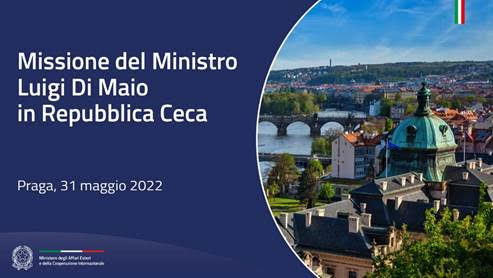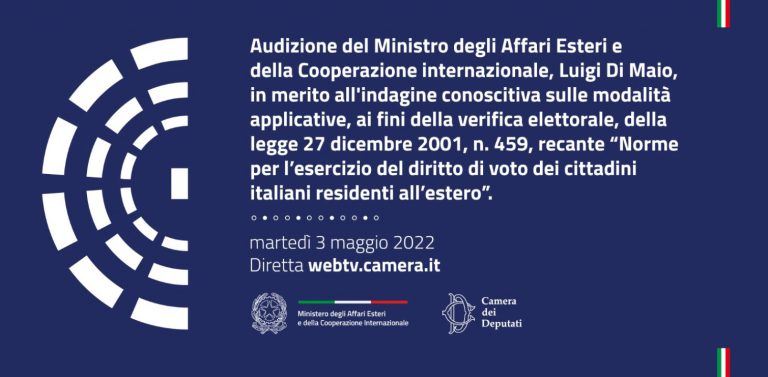Today marks the 63rd anniversary of the tragedy of the Bois du Cazier mine in Marcinelle, Belgium, in which 262 miners died on 8 August 1956. The disaster is etched onto the collective memory of us Italians because the fellow citizens who lost their lives were 163, more than half of the total. A terrible tragedy, with victims of eleven different nationalities, nine of which European.
On the day of the Marcinelle disaster, every year we celebrate the National Day of the Sacrifice of Italian Workers in the World. It is an important and solemn commemoration to pay homage to the many Italian workers, men and women, who honoured and continue to honour our Homeland everywhere in the world, with the value of their work and their ingenuity, driven by their dedication and the wish to succeed in the Countries in which they settle.
My personal thoughts feelingly go to all those who died at work, while fulfilling a noble duty and the exercise of an essential right of every human being. To die on the job is a very sad eventuality that we must commit to prevent with every possible means. This is why it is necessary to primarily act at national, European and international level to strengthen the framework of regulations to assure on-the-job safety and prevent accidents at work.
Let us not forget that, immediately after the Marcinelle disaster, the High Authority of the European Coal and Steel Community (ECSC), which had been founded five years earlier, began to address the issue of safety at work that had been previously neglected. After all, the actual implementation of uniform and consistent social policies across the European Union is still insufficient to this day. Not without reason, it continues to be included among the objectives to pursue in the recently adopted EU New Strategic Agenda 2019-2024.
Because the European Union is on the eve of opening a new legislature, I think that it is truly important that EU Institutions hastily indicate the initiatives they intend to bring forward, phased into a precise calendar. Ideas and declarations of intent abound but only rarely are they put into practice. I am convinced that we instead need to predispose an effective fabric of European rules to organically address the most urgent socially relevant issues indispensable to reduce the no longer acceptable and anachronistic asymmetries among EU States.
In particular, we must: proceed to put in place European-wide insurance systems covering workplace accidents and deaths and better harmonise national court decisions on the matter; level off the unjustifiable inequality in the wages and social security benefits of workers in different EU Countries, aligning them to the best applicable rules and practices; assure everybody adequate and modern social protection; protect the most vulnerable groups and affirm the substantial equality between men and women, also in wages; structure a European system financed by the EU budget to incisively support those who are jobless or wish to receive professional retraining; continue to promote a fair, dynamic and inclusive European-wide labour market.
Of course, these are relevant matters and Italy can do nothing else but make a propositional contribution on each one of them in the debates and joint actions of EU Institutions. We have been doing this for a long time, on the strength of our sound legislative, operating and cultural experience, corroborated by the stimulus of Italian communities abroad: a precious source of inspiration and a winning example of social and economic success.
I believe this is a concrete way of looking forward and of clinging tightly and assertively to the symbol of Marcinelle. We owe it to those who died in the mine 63 years ago, to the excruciating pain of their families, to the too many worker fatalities. We owe it to the Constitution of the Republic, which baptised it as “founded on work”.
In keeping with the same state of mind, it is impossible to not evoke the Italians who, especially between the 19th and 20th centuries, left their homeland to pursue a decent future far from home and to assure a better life for their children. They often left, facing the unknown, following vague promises, venturing out on uncertain and dangerous voyages and finding gruelling conditions once they arrived at their destination. Like other Europeans, up to the 1960s – only yesterday, if you think of it – we were one of the world’s nations with structural emigration. The story is testified in an infinite number of novels, fictions, films and songs.
It was an enormous outflow from Italy that still goes on today, albeit in smaller numbers and with different characteristics. On the one hand, it quite often concerns qualified workers, to the extent that it is referred to as ‘brain drain’; for them, the experience abroad enables them to supplement their professional and academic knowledge pool; then, some of them come back while others may or may not definitively decide to settle abroad. On the other hand, today the European Union is internally regulated by the freedom of movement and of residence in any one of the EU Member States; the very EU citizenship, granted in parallel to national citizenship, makes us feel less alien where we once were, and EU law protects us against all types of discrimination. It is undoubtedly an evolution whose fruits had not yet benefited our fellow Italians who worked and died at Marcinelle.
Our globalised and digital modern world, with its continuous technological advancements, shortens physical and psychological distances, keeps us constantly interconnected, eliminates or narrows barriers, increases travel opportunities, and enables people to find a job not too far from home or practically anywhere in the world. At the same time, it imposes new challenges, and can put at risk traditional roles and tasks; those who fail to keep up pace lose ground and this scares us but it is a fallacious conclusion because economic figures show that the new jobs created – innovative and unprecedented –are more than those that become obsolete. However, this cross-border ‘new mobility’ is regrettably greatly outnumbered by and largely less dramatic than the huge current migration flows, most of which are bound to Europe.
History and current events teach us that it is always difficult to fully integrate into social fabrics that are different from the ones we belong to and that the road is fraught with great hostilities and frequent hurdles to overcome. However, Italian emigrants and their descendants have shown an extraordinary capacity in this respect.
In this intense year as Foreign Minister, I have gone on numerous missions outside Italy and I observed the positive image we have, also thanks to the great appreciation and esteem that many Italians working abroad enjoy. Women and men of whom we are proud, who had the merit of enriching the societies into which they have integrated with their activities, intellectual or manual.
Our communities abroad have unfailingly made an essential contribution to the growth of the Countries in which they have settled, playing a key role in disseminating knowledge of Italy, its culture and its identity all over the world. We must acknowledge, with undoubting gratitude and respect, their invaluable work and, above all, never forget their sacrifices.
Dear Italian Friends, wherever you are in the world, you should be aware of the precious contribution that you make, with your industrious work, to shaping the flattering image and reputation of your Fatherland abroad. You are the essential backbone, the connecting infrastructure, that it is our duty to enhance and build on. You are the tangible bridge between your States of residence and Italy.
On this special day dedicated to those who have sacrificed themselves, and ultimately their lives, I would like to extend to you my sincerest greetings and a brotherly embrace.
Thank you for the contribution that you offer every day towards the growth of the Republic.




